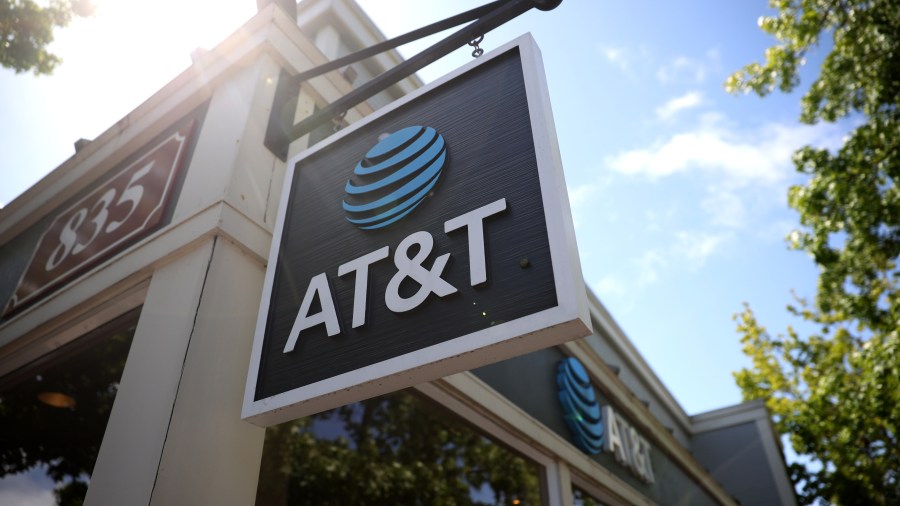That AT&T-Discovery deal is about the battle for broadband

It’s been not quite three years since AT&T completed its $85 billion merger with Time Warner, with the hope that investing in content would drive customers to consume that content with AT&T’s internet and on AT&T phones. Now, that deal is coming undone. AT&T plans to spin off HBO, CNN and the rest of its media assets in a deal with Discovery, leaving telecommunications as its main focus again.
Verizon is doing the same thing by getting rid of AOL and Yahoo. I spoke with Roger Entner, who follows the industry as founder of Recon Analytics. He said this comes as the industry pours billions of dollars into 5G and fiber. And it’s hard to fight the broadband war and the streaming war at the same time. The following is an edited transcript of our conversation.

Roger Entner: Well, [AT&T and Verizon] realized that the grass isn’t greener on the other side. Both AT&T and Verizon got into this because of Google and Facebook envy. They looked at their businesses and saw that other people were making a lot of money over their pipes. And they thought, “We can do this too.” AT&T looked at it [and said], “What’s the No. 1 thing that people do on smartphones? They watch videos, so why don’t we buy DirecTV, that distributes the content, and a content maker, Time Warner?” And then they realized that it was a little bit harder than they thought. And so now they’re backing out of these mistakes.
Amy Scott: So it seems the price tag of this, AT&T is going to get $43 billion from this deal if it goes forward. What does that tell us about the cost of this kind of investment?
Entner: Well, telecom is a very expensive business. AT&T spent $23 billion just on new spectrum recently. They will have to spend billions of dollars also to put down the fiber and to build these towers. And this deal will now help them focus their funding on the telco activities. T-Mobile currently has an advantage in the 5G race, and AT&T and also Verizon don’t want to let them get away with it.
Scott: AT&T has said it plans to spend, I think, $24 billion next year on that 5G and fiber infrastructure if this deal goes through. How does that compare with what it would have spent?
Entner: Well, it had been planning to invest between $18 and $20 billion a year. And so this is basically a third more than what they had been planning to. And when we look on the fiber side, they were planning to connect 15 million households with fiber. Now, they’re planning to connect 30 million people.
Scott: Where do you see that happening? Is it going to reach people in rural areas? Are we talking mostly urban areas in the states that AT&T serves?
Entner: I think they will connect mostly urban and suburban customers in the 22 states where they offer service. It might reach out to the rural parts, but the biggest bang for the buck is in urban and especially suburban markets.
Scott: What does this mean for consumers, if anything? Are we going to see better prices, better speeds?
Entner: Well, I think what we will see is more people will be connected faster. They will invest more in 5G, so the other companies have to invest more as well. And so what we will get is faster internet, both in fiber and in wireless, and probably better deals. This competition will not slow down, rather speed up with this transaction.

Related links: More insight from Amy Scott
The strategy of owning both content and the means of distribution is known as “vertical integration,” and Bloomberg has a story about why it hasn’t been working out for telecom companies. Comcast is the outlier, for now, with its cable, internet and entertainment empire.
One casualty of the AT&T-Discovery deal appears to be the CEO of WarnerMedia. Discovery CEO David Zaslav will lead the newly combined media company. Warner’s Jason Kilar is reportedly negotiating his exit strategy. Kilar had a somewhat rocky start leading HBO, CNN, TNT and TBS, among other divisions. The former Hulu CEO oversaw thousands of layoffs at WarnerMedia and made the controversial decision to release new movies on HBO Max at the same time as in theaters this year, much to the dismay of filmmakers.
Just last week, The Wall Street Journal had a big profile of Kilar, which started with the now-regrettable line: “Jason Kilar might have a career as a tour guide if this WarnerMedia chief executive gig doesn’t work out for him.” Meanwhile, the reporter of that piece, Joe Flint, said, “Hopefully my future is still relatively safe.”
The future of this podcast starts with you.
Every day, the “Marketplace Tech” team demystifies the digital economy with stories that explore more than just Big Tech. We’re committed to covering topics that matter to you and the world around us, diving deep into how technology intersects with climate change, inequity, and disinformation.
As part of a nonprofit newsroom, we’re counting on listeners like you to keep this public service paywall-free and available to all.
Support “Marketplace Tech” in any amount today and become a partner in our mission.


















